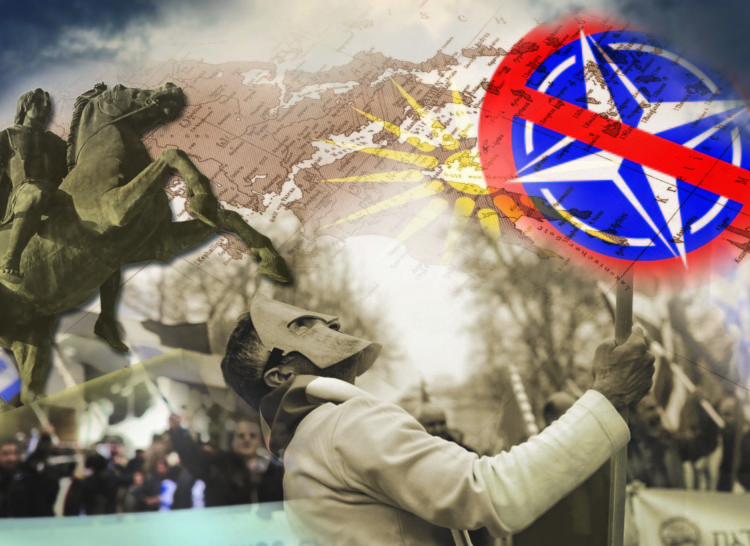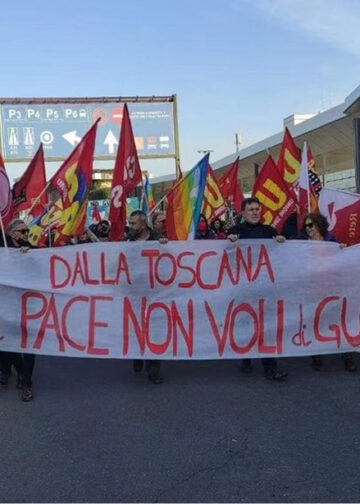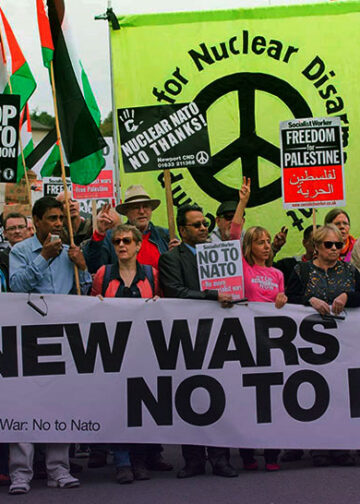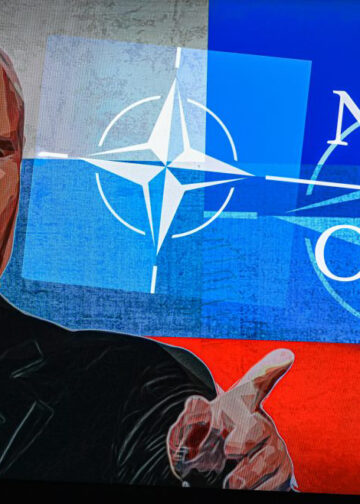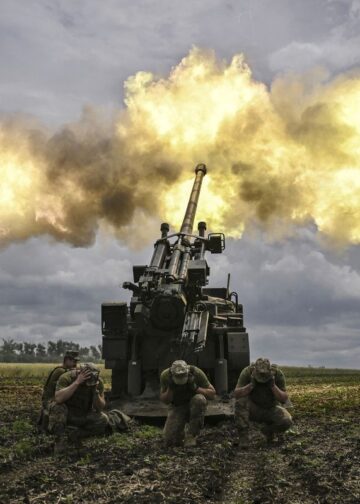NEWSPAPER “PRIN”
SUNDAY 4th FEBRUARY
LEAFLET No 1,364
By PANAGIOTIS MAVROEIDIS pages 8-9
The massiveness of the rallies for the “Macedonian issue” and mainly the dominance of far-right nationalist, militarist, warlike, even fascist slogans in those, cause talks and concern. Even divisions into the anticapitalist and communist Left and more broadly into forces of the movement. The tendency of the bourgeois reactionary nationalism to be connected with both fascism and the religion of every form or color, is essential to be highlighted from the beginning. Their common principal is their irrational basis, since they tend to make up a nation or a religion more superior than others- sometimes even as unique.
This side shows the basis of the universal opposition of the communists to nationalism, considering the labor internationalism and the prospect socialist unification of humanity.
However , there is a discrimination that must be done ; Communists do not identify the sensation of the separate national identity or even love for country and place of living and people’s fight, with nationalism as ideology of proclamation of a nation as a basic and more superior value and as a result , its growth , in a place of superiority and competition at the expense of the rest nations. This side of nationalism is tightly connected to the action of the bourgeois nations/states their competition.
The nations, even mainly grow in the states-nations (which are rarely nationally homogeneous ), do not identify themselves with the borders of the states and are not connected historically in an unambiguous way with the state assemblies. Inside the pre-capitalist empires many nations co-existed in the same political-state-geographical entity. The emersion of the majority of the nations-states in t the 14th and 15th century and mainly after French revolution, is definitely connected with the first appearance of capitalism. So they are product of a historical formation and they did not exist unchanged in the past and no one can declare they will be eternal in the future.
The transformation of the nations into capitalist states is simultaneously a change in their forms, in combination with the economic and political bourgeois power and the national ideology that is grown.
The obsession of the Recognition or not of nations considering only some “objective criteria” (such as language, stable borders etc.) without taking into account the subjective understanding and national self-consciousness from a political community, is not only unacceptable but also a cause of national depression and wars.
Apart from that, it is not right to be considered that if a nation does not exist since ancient times and hasn’t secured its historical continuity untouched until today, it cannot be created under some modern historical social and cultural circumstances, especially in the frame of a state formation. Before we start talking about the Macedonian conflict we should remember when and how the (northern) American nation (and state) was created. Considering this, the right labeling that the nations are in one way an imaginary historical construction and they are not a unilaterally objectively demonstrable over-history entities, cannot lead us to the naive opinion that nations are fake idols without a real substance.
The history of the wars and the lots of people who are ready – in the influence of the flags of their nation- not only to kill but to be killed is enough for the previous statement to be proved.
Considering all those, and especially because of the acidification of the national conflicts in modern world, it is obvious that neither nations tend to disappear –in the frame of a wrong understanding of the Marxist problematic of the increasingly globalized capitalism- nor the fight against nationalism is easy or can be achieved by using self-evident arguments.
Mainly, both the subordination to national rhetoric and the mechanistic antinationalism – by ignoring the contradictions of the relationship between the national issue and the international political relationships and contradictory political goals between the classes- lead the labor movement to defeat.
The nation in the bourgeois strategy is the main principle of reference, as a field of exercising the bourgeois power and simultaneously as the basis of the excursion of capital, especially for the most developed capitalist countries. So as a starting point, the nation in the bourgeois ideology and especially the corresponding foundation of nationalism, are devise meanings, which tend to competition and after all to wars of extermination.
On the other hand, for communists, the main value is the humanity and its liberating powers, which are the oppressed majority and above all the working classes that exist in every country around the world. In Marxist visual –unfortunately without lack of the mechanistic interpretations which seek for a linear evolution process of an automatic disappearance of the nations through the capitalist development- the answer at both the economic (and not only that) exploitation and oppression and the divisions that lead to war, is in the labor internationalism and the socialistic revolution in every country and after all in the communist unity of humanity in a fair and democratic society.
Between the modern epoch which is characterized by the domination of the bourgeoisie and the bourgeois warlike nationalism and a new wave of labor internationalism and revolutions, exists the political and ideological fight and of course the social struggles. Exactly in these fields and with this perspective we place ourselves for the national issues in every epoch and every region.
The relation between the national, the international and the classy issue, is always connected with the formation of the classy relations in capitalism and especially with the combined but also uneven growth of capitalism. Capitalism can only grow in every country, smaller or bigger (using the labor class), but always uneven. This causes a different level of economic growth in countries or group of countries, and also a different evolution of political institutions and formation of cultural traditions and experiencies.
The article is also available in Greek/To κείμενο στα Ελληνικά


